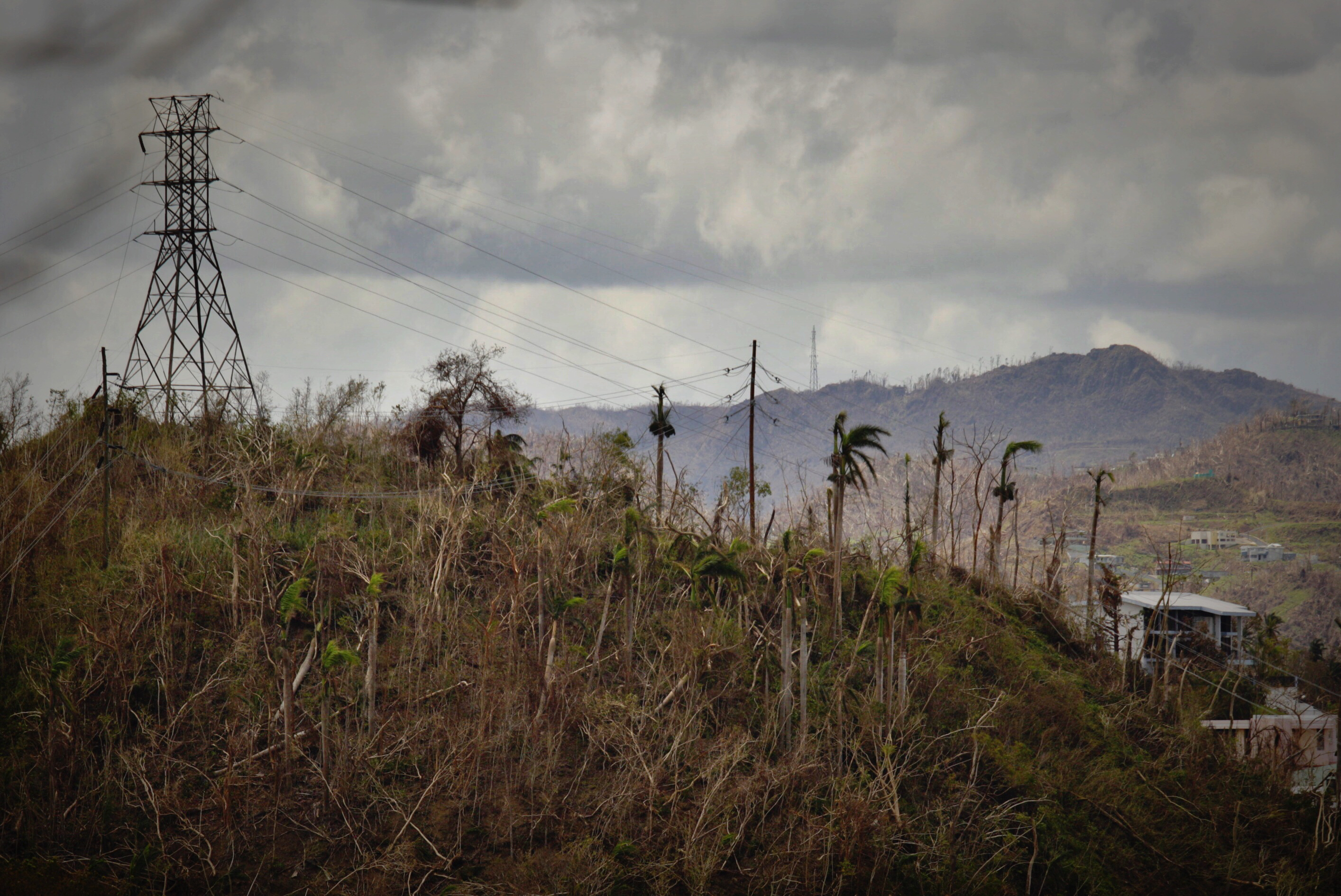Spiritual Sunday
If you get a chance, check out “It’s Almost Like Praying,” the powerful Lin-Manuel Miranda song performed by Puerto Rican artists (and others) designed to uplift the spirits of the storm-ravaged island and to raise money for the relief effort. It brought tears to my eyes and Samuel Taylor Coleridge’s “Dejection Ode” to my mind.
That’s because the poem, which describes a storm, turns hopeful at the end, asking, “May this storm be but a mountain-birth.” Though the poem is about a lady loved by the unhappily married Coleridge, it speaks to all who have been through a hellish night but sense the prospect of a new dawn before them. Miranda too started with a love affair–that of Tony and Maria in West Side Story–and built his song from there. By the end, Maria the destructive storm has become the healing Santa Maria.
Miranda has discussed how the hurricane burdened the name with conflicting associations. He quickly got permission to use the Leonard Bernstein song “Maria” (“it’s almost like praying, Maria”) and wrote lyrics that listed all the different sections of Puerto Rico to let them know they hadn’t been forgotten. Then he gathered together noteworthy Puerto Rican and other Latino/a singers in a display of unity and support.
“Dejection” opens by quoting the tragic ballad of Sir Patrick Spence, who knows that his king has essentially ordered his death by sending him out into a storm:
Late, late yestreen I saw the new Moon,
With the old Moon in her arms;
And I fear, I fear, my Master dear!
We shall have a deadly storm.
Puerto Rico also knew that a deadly storm was forecast, and while Coleridge’s storm is far weaker, it captures some of the fierceness that the island experienced. The “lute” mentioned is a wind harp, a favorite instrument of the Romantic poets since they saw it as a metaphor for their own relationship with nature:
Hence, viper thoughts, that coil around my mind,
Reality’s dark dream!
I turn from you, and listen to the wind,
Which long has raved unnoticed. What a scream
Of agony by torture lengthened out
That lute sent forth! Thou Wind, that rav’st without,
Bare crag, or mountain-tairn, or blasted tree,
Or pine-grove whither woodman never clomb,
Or lonely house, long held the witches’ home,
Methinks were fitter instruments for thee,
Mad Lutanist!
Coleridge makes a point that might comfort the people of Puerto Rico: our souls, not Nature, define us. I won’t go into how the poem is a response to Wordsworth’s Intimations of Immortality but only admire the image of our luminous soul shining forth to envelope the earth. This is of “higher worth” than what the “inanimate cold world” offers “the poor loveless ever-anxious crowd”:
O Lady! we receive but what we give,
And in our life alone does Nature live:
Ours is her wedding garment, ours her shroud!
And would we aught behold, of higher worth,
Than that inanimate cold world allowed
To the poor loveless ever-anxious crowd,
Ah! from the soul itself must issue forth
A light, a glory, a fair luminous cloud
Enveloping the Earth—
And from the soul itself must there be sent
A sweet and potent voice, of its own birth,
Of all sweet sounds the life and element!
In other words, if Nature, with its cycle of life and death, are to infused with sweet sounds, it is up to the “sweet and potent voice” of the human soul. From his earlier dejection, Coleridge has talked himself into a more peaceful state, and he wishes this state upon his lady friend. Let’s say that he is all of us worrying about Puerto Rico and wishing her peace:
‘Tis midnight, but small thoughts have I of sleep:
Full seldom may my friend such vigils keep!
Visit her, gentle Sleep! with wings of healing,
And may this storm be but a mountain-birth,
May all the stars hang bright above her dwelling,
Silent as though they watched the sleeping Earth!
With light heart may she rise,
Gay fancy, cheerful eyes,
Joy lift her spirit, joy attune her voice;
To her may all things live, from pole to pole,
Their life the eddying of her living soul!
O simple spirit, guided from above,
Dear Lady! friend devoutest of my choice,
Thus mayest thou ever, evermore rejoice.
It’s almost like praying.


